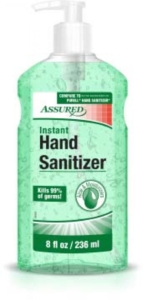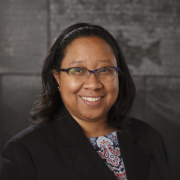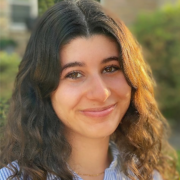The 2020 Medication Adherence Team Challenge is part of the national Script Your Future public awareness campaign coordinated by NCL with support from its partners and the Challenge sponsors—the American Association of Colleges of Pharmacy (AACP), the National Association of Chain Drug Stores (NACDS) Foundation, the National Community Pharmacists Association (NCPA) and the American Pharmacists Association (APhA).
Medication non-adherence can lead to devastating health outcomes. Research shows that nearly one in five prescriptions go unfilled and half of all patients with chronic illnesses do not take their medication as prescribed. Improved medication adherence leads to better health outcomes and reduced total healthcare costs, and it was for these reasons that NCL launched the Script Your Future awareness campaign in 2011.
The Team Challenge was established to extend campaign messages into medical and other schools of health professions, and to nurture adherence-minded values in future generations of professionals entering the workplace. Each year, top performing teams are honored with a National Award for overall outstanding team achievement, or a Focused Award, which recognizes outstanding team achievement in the specific areas of health disparity/under-represented community outreach, media/communications outreach, or creative interprofessional team event. This year, we introduced a new focused award category, with the inclusion of a Technology Innovation Focused Award – a category that evaluates creative outreach with a focus on technology-based interventions.
In 2020, our Team Challenge student health professionals were met with unique challenges as they navigated the historic COVID-19 pandemic, which resulted in school closures, event cancelations, and a host of other obstacles. To adhere to social distancing guidelines, our dedicated teams pivoted their campaigns and made an impact in other ways. This year, the Team Challenge observed engagement from nearly 2,900 future healthcare professionals and volunteers, who all together hosted over 250 events in 14 states. Collectively, the teams directly counseled close to 12,000 patients and introduced Script Your Future messaging to over 430,000 consumers, nationwide. Since the Team Challenge began in 2011, more than 21, 000 future healthcare professionals have directly counseled nearly 87,000 patients and nearly 26 million consumers.
The recognized schools, selected from dozens of applications and 82 participating educational institutions, are listed below.
National Award | University of the Sciences: Philadelphia College of Pharmacy, PA
University of the Sciences (USciences) interdisciplinary medication adherence outreach centered around individuals across all ages, from children to older adults. USciences’ team structure included students of pharmacy, occupational and physical therapies, medicine, and social work. Throughout the Team Challenge, USciences directly counseled 455 patients, reaching a total of 805 people. During their outreach, USciences introduced a new campaign theme – “A future of ______ begins with me”, to personalize medication adherence through each patient interaction. USciences’ campaign also placed a great emphasis on addressing racial disparities, reducing stigma surrounding mental health, and tangential issues like vaccine confidence and proper nutrition.
National Award Finalists
The following schools were named Finalists under the National Award category:
Pacific University School of Pharmacy, West Virginia University School of Pharmacy, Western University College of Pharmacy, Northeast Ohio Medical University (NEOMED), University of Charleston School of Pharmacy, Touro University College of Pharmacy, St. Louis College of Pharmacy.
Rookie Award | Howard University College of Pharmacy – Washington, DC
NCL is thrilled to announce that DC HBCU, Howard University College of Pharmacy, was the recipient of the 2020 Rookie Award. Howard University’s team included students of pharmacy, medicine, social work, and dentistry. Howard University’s target population included homeless or displaced minorities, children and parents, and adults with behavioral issues. The team tailored its disease focus to diabetes and heart disease, as they are chronic conditions that plague the region. Throughout the Challenge, Howard University directly counseled close to 400 patients and reached over 1,000 people with the help of 169 students and volunteers and distributed nearly 1,000 Script Your Future medication adherence resources.
Rookie Award Finalist: University of Arizona College of Pharmacy– AZ
The University of Arizona College of Pharmacy in Tucson, AZ also made a strong showing in the Team Challenge as a first-time competitor.
Focused Awards
Health Disparities Community Outreach Award | St. Louis College of Pharmacy – MO
Pharmacy students from St. Louis College of Pharmacy and nursing students from St. Louis University, joined forces to strategically and intentionally identify their target population – residents of a region of St. Louis known as the “Delmar Divide.” St. Louis College of Pharmacy chose this target population due to the stark disparities observed in the residents directly north and south of the Delmar Divide. For their outreach, St. Louis College of Pharmacy focused their interventions on communities north of the Delmar Divide, which predominantly consists of people of color of lower socioeconomic means. The team chose to focus on chronic conditions like diabetes and hypertension. Together, 60 students and volunteers directly counseled 350 patients and reached nearly 400 people. Through numerous events and newly fostered community partnerships, St. Louis College of Pharmacy disseminated nearly 400 Script Your Future medication adherence resources within the community.
Communication and Media Outreach Award | Lake Erie College of Osteopathic Medicine School of Pharmacy (LECOM) – PA & FL
To illustrate the diversity of their team, LECOM pharmacy and medical students from campuses based in PA and FL produced a public service announcement (PSA) spoken in eight languages, to help amplify the value of medication adherence to numerous populations. The PSA garnered over 2,800 views. LECOM employed social media platforms like Facebook, Instagram, Twitter, and LECOM’s Pulse Newsletter, to help disseminate Script Your Future medication adherence messaging. LECOM students also wrote an original book to present heart health information to the children entitled “Mr. Pumper and the Heart Valves”, which was read to third grade elementary students. Throughout the Challenge, 293 students and volunteers directly counseled over 500 patients, reaching over 1,200 patients, and disseminated over 730 Script Your Future resources in their community.
Creative Inter-Professional Team Event Award | University of Pittsburgh School of Pharmacy – PA
The University of Pittsburgh School of Pharmacy partnered with the Schools of medicine, dentistry, social work, nursing, dietetics, and rehabilitation sciences, to organize a team of over 300 students and volunteers to execute their medication adherence outreach. University of Pittsburgh harnessed the interdisciplinary nature of their team to build a campaign serving older adults in their community, from a holistic treatment perspective. The team addressed issues like hypertension, social isolation, and food insecurity. Throughout the Challenge, University of Pittsburgh directly counseled over 130 patients and reached over 2,200 patients.
Technology Innovation Award| Western University College of Pharmacy – CA
Western University College of Pharmacy made an impressive debut for the inaugural inclusion of the Technology Innovation Award. To foster medication adherence, the team created a dedicated website that directed patients to resources relating to disease areas like COPD, pneumonia, heart failure, and diabetes. The website was geared towards patients recently discharged following a hospital stay and contained features like medication and post-discharge appointment reminders and medication adherence-related infographics in multiple languages.
 By NCL Executive Assistant Adrienne Archer
By NCL Executive Assistant Adrienne Archer The Food and Drug Administration (FDA) has observed a sharp increase in those that, in addition to ethanol, also contain methanol—an ingredient that can be toxic when absorbed through the skin and can be fatal when ingested. Children and adults ingesting certain sanitizers led to blindness, hospitalizations, and even death.
The Food and Drug Administration (FDA) has observed a sharp increase in those that, in addition to ethanol, also contain methanol—an ingredient that can be toxic when absorbed through the skin and can be fatal when ingested. Children and adults ingesting certain sanitizers led to blindness, hospitalizations, and even death.


 By NCL Health Policy intern Talia Zitner
By NCL Health Policy intern Talia Zitner










